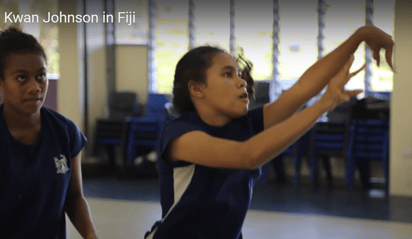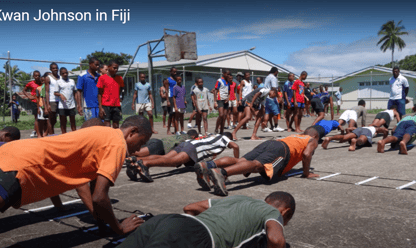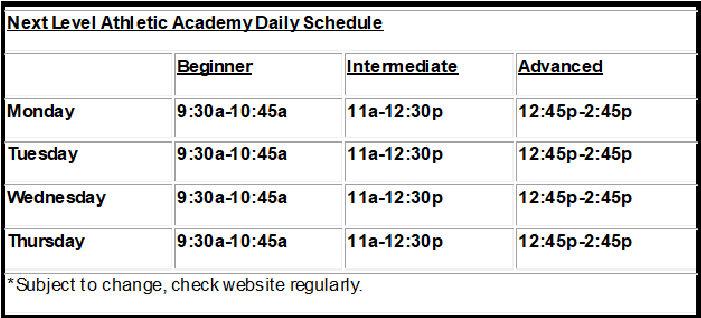Basketball Skills & Athletic Development Programs
Enhancing athletic skills, mental strength, and overall performance for aspiring basketball players
Skill Training Sessions
Focused training sessions designed to improve basketball skills and enhance athletic performance for all levels.
Mental Conditioning
Programs aimed at developing mental resilience and focus, crucial for success in competitive sports.
Join our academy to take your game to the Next Level, and unlock your full performance potential.
Athletic Enhancement Training
Athletic Development Training Programs
Enhancing skills, mindset, and performance for aspiring athletes.


Athletic Enhancement Training
Our basketball training focuses on skill development, teamwork, and mental toughness to elevate players to their highest potential in a competitive environment.


Basketball Skill Development
We offer youth development programs that foster athletic growth, confidence, and a love for the game, ensuring a strong foundation for future success in sports.


Mentality Training
Our basketball training focuses on skill development, teamwork, and mental toughness to elevate players to their highest potential in a competitive environment.
ADVANCED
Strong skills
INTERMIDIATE
Refining skills & gaining experience
BEGINNER
Learning basics & fundamentals
Maximize your potential with 14 available days of Training each Month, featuring the opportunity to Train Twice a Day, Two Times per Week.
Take your BASKETBALL SKILLS & ATHLETIC PERFORMANCE to the NEXT LEVEL!


Basketball Skills & Athletic Development Description
Athletic Enhancement Training
Athletic enhancement training focuses on improving an athlete's overall physical performance by developing strength, speed, agility, endurance, and flexibility. It goes beyond basic conditioning to target specific areas needed for optimal performance in sports. NLAA athletic enhancement training typically includes:
Strength and Power Development:
Building muscle strength and explosive power to improve performance in sports movements like jumping, sprinting, and quick directional changes.
Speed and Agility Training:
Enhancing acceleration, top speed, and the ability to change direction quickly and efficiently, which is critical in most sports.
Endurance and Stamina:
Improving cardiovascular and muscular endurance to ensure athletes can perform at a high level for the entire duration of their activity.
Mobility and Flexibility:
Increasing the range of motion in joints and muscle flexibility to reduce injury risk and improve movement efficiency.
Balance and Coordination:
Training to maintain control of body movements, especially in complex, dynamic sports situations.
Core Stability:
Strengthening the core muscles (abdominals, back, hips) to improve posture, balance, and overall athletic performance.
At NLAA, athletic enhancement training combines these components with basketball-specific drills and exercises to help athletes perform better on the court. The training is personalized based on an athlete’s individual needs, strengths, and goals.
Basketball Skill Development
Basketball skill development focuses on improving an athlete's technical abilities, basketball IQ, and overall understanding of the game. It includes:
Dribbling and Ball Handling:
Mastery of both hands for dribbling under pressure.
Advanced ball control for effective crossovers, behind-the-back, spin moves, etc.
Shooting:
Focus on proper shooting mechanics: hand placement, footwork, release, and follow-through.
Development of range, accuracy, and consistency.
Game-like shooting drills to simulate real scenarios.
Passing:
Precision passing with both hands.
Execution of different types of passes: chest pass, bounce pass, overhead pass, and no-look passes.
Improving court vision and decision-making in passing.
Footwork:
Fundamental pivoting, jab steps, and agility movements.
Offensive moves like step-backs, euro steps, and cuts.
Defensive footwork: shuffling, closeouts, and positioning.
Defense:
On-ball and off-ball defensive principles.
Developing defensive IQ: reading the offense, rotations, and switching.
Improving lateral quickness and ability to contest shots without fouling.
Rebounding:
Techniques for boxing out, timing jumps, and grabbing rebounds.
Both offensive and defensive rebounding strategies.
Basketball IQ:
Understanding plays, spacing, and timing.
Reading defenses and recognizing opportunities for cuts, screens, and open shots.
Developing leadership and communication on the court.
Strength and Conditioning:
Building athleticism through strength, agility, and stamina training.
Specific exercises for speed, vertical jump, and lateral quickness.
Mental Training:
Confidence-building exercises.
Focus on resilience, focus, and competitive mindset under pressure.
Each area of development helps players improve in all facets of the game, making them more well-rounded athletes.
Mentality Development Training
Sports mentality training, often referred to as mental conditioning, is a crucial component in athletic development, focusing on improving an athlete's mindset, mental resilience, and ability to handle pressure. It helps athletes enhance their performance by building strong mental skills that complement their physical training. Here are some key elements of sports mentality training:
1. Goal Setting
Purpose: To give athletes a clear direction and motivation.
2. Focus and Concentration
Purpose: To maintain attention on key tasks during competition and practice.
3. Confidence Building
Purpose: To develop self-belief in one's abilities.
4. Stress and Anxiety Management
Purpose: To prevent mental fatigue and breakdowns under pressure.
5. Mental Toughness and Resilience
Purpose: To endure challenges and bounce back from setbacks.
6. Visualization and Imagery
Purpose: To mentally rehearse successful performance.
7. Emotional Regulation
Purpose: To manage emotions such as frustration, anger, or excitement.
8. Developing a Growth Mindset
Purpose: To encourage learning and improvement rather than fearing failure.
9. Team Dynamics and Communication
Purpose: To foster effective communication and trust within a team.
10. Pre-Performance Routines
Purpose: To create a consistent mental state before competing.
By integrating these components, athletes can improve their mental fortitude, which translates to better performance on the court, field, or track.








